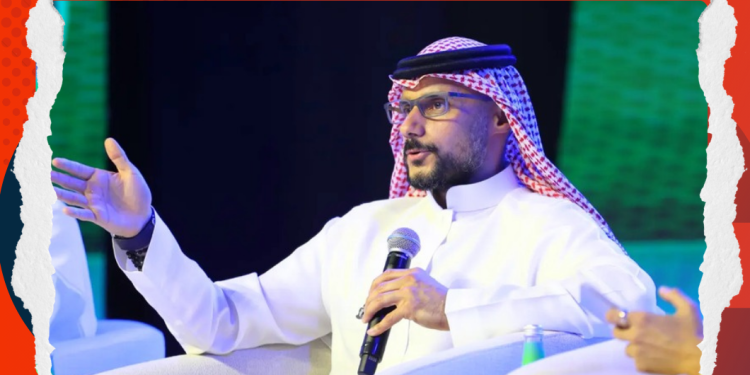Prince Khaled bin Alwaleed has launched a scathing attack on Meta, accusing the tech giant of caring more about money than protecting people from fraud. The Saudi royal says fake accounts are stealing from Gulf residents while Facebook and Instagram do nothing to stop it.
Dozens of bogus profiles use his sister Princess Reem’s name and photos to trick people into sending money. These scams target small amounts, sometimes just 100 dirhams, from people who trust the royal family name.
“When there is a real problem, like fraudulent bad actors taking unsuspecting people for money, out and out conning them openly, social media companies claim not to be able to manage the problem,” Prince Khaled told Arabian Business.
The prince’s team put together detailed reports about the fake accounts and sent them to all major platforms. Snap and X acted fast, cleaning up the fraudulent profiles immediately. TikTok took longer but eventually responded. Meta? Complete silence.
Meta Makes Billions But Spends Little on Safety
Meta reported $164.5 billion in revenue for 2024, with profits soaring 49% to $20.8 billion in the fourth quarter alone. Yet the company barely invests in user protection in the Gulf region.
“The social media companies only install salespeople here in the region,” he said. “They don’t bother setting up trust and security arms because they are only concerned with profiting off of our digital interests.”
This creates an impossible situation for ordinary people. Prince Khaled has a full communications team to handle these issues, but regular citizens have no such resources. They become victims with nowhere to turn for help.
Former Meta Executive Confirms the Problem
Ashraf Zeitoon, who used to run Meta’s Middle East policy team, backs up the prince’s claims. He says Meta has all the tools needed to stop these scams but chooses not to use them.
“They could easily deploy tools such as IP address blocking to prevent scammers from creating new accounts,” Zeitoon explained. “But their trust and safety teams in the GCC are underdeveloped, and financial fraud simply doesn’t sit on their priority list.”
Meta can track users across devices, detect fake accounts, and block suspicious activity. The company uses these same tools to target ads with pinpoint accuracy. But when it comes to protecting users from fraud, suddenly the technology becomes too complex to manage.
Gulf Regulators Face Pressure to Act
Prince Khaled now wants Saudi Arabia and UAE authorities to investigate how social media platforms handle fraud. He calls their approach a “take-take-take” relationship with no accountability.
Recent data shows the scale of the problem. The Pew Research Center reports that Americans lost a record $16.6 billion to internet scams in 2024. The Federal Trade Commission says social media fraud has cost people over $2.7 billion since 2021.
In Australia, customer reports of buying and selling scams jumped 78% in late 2023, with most originating on Facebook Marketplace. British regulators have found similar patterns of fraud coming from Meta’s platforms.
Scammers exploit cultural respect for royal families and wealthy business leaders. They create fake investment opportunities using trusted names, knowing people are less likely to question offers from respected figures.
The Cost of Inaction
The implications go beyond individual losses. When major platforms ignore fraud, they undermine trust in digital commerce and social media itself. This hits developing digital economies particularly hard.
Gulf countries are investing heavily in digital transformation and online business growth. But if people can’t trust basic safety on major platforms, these investments lose value. Citizens become reluctant to engage in legitimate online activities.
Prince Khaled’s frustration reflects this larger problem. He has resources and connections most people lack, yet even he struggles to get Meta’s attention. Regular citizens face impossible odds when trying to report fraud or get help recovering losses.
The prince’s call for regulatory action may signal a turning point. Gulf governments have shown willingness to challenge big tech companies when local interests are at stake. If Meta continues to ignore these concerns, it may face serious regulatory consequences in a lucrative market.














